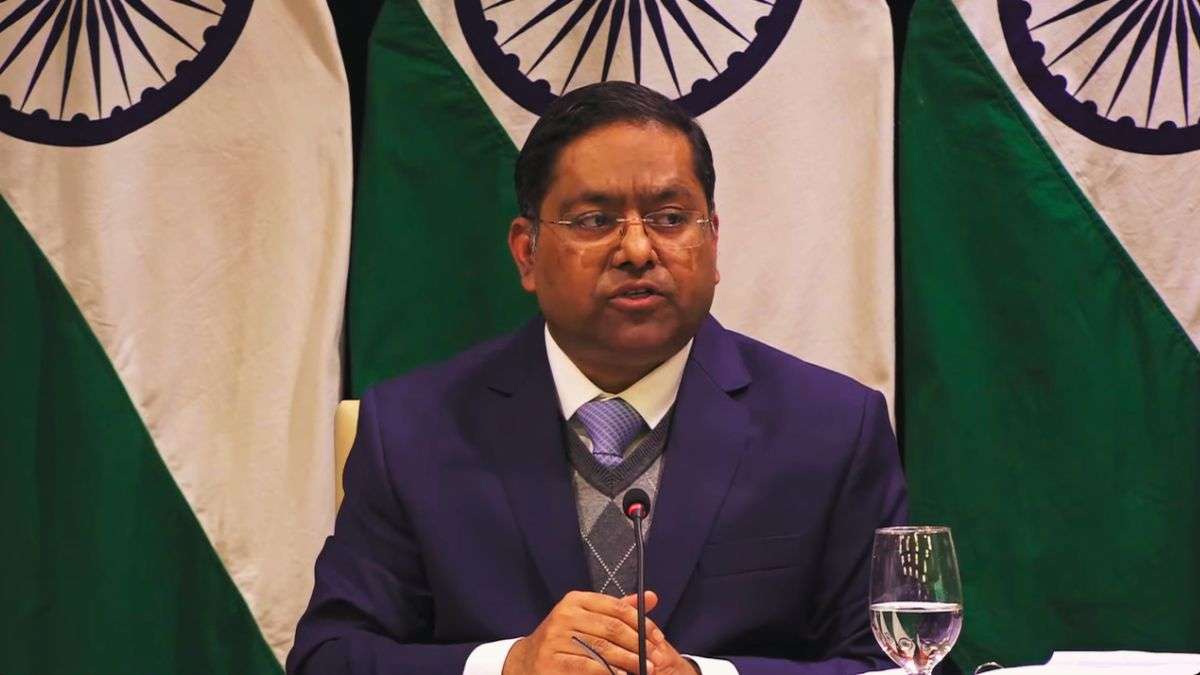In an escalating diplomatic row, Canada has now included India in its list of cyber threat adversaries, a move that has stirred sharp responses from New Delhi. India swiftly dismissed Canada’s accusation, calling it a “manipulation strategy” aimed at tarnishing its image on the international stage. The allegations, part of Canada’s National Cyber Threat Assessment 2025-2026 (NCTA) report, have further strained already tense relations between the two countries. This latest development underscores the complex dynamics of cyber threat narratives and the geopolitical strategies at play.
Canada Labels India a Cyber Threat Adversary
For the first time, Canada has officially listed India among its cyber threat adversaries in the NCTA 2025-2026 report. Placing India fifth on the list, after countries like China, Russia, Iran, and North Korea, Canada suggested that state-sponsored actors from India could be engaging in espionage activities against it. According to the report, Canada believes that “Indian state-sponsored cyber threat actors” are likely targeting Canadian government networks for purposes of espionage. This categorization aligns India with nations typically perceived as more aggressive in the cyber domain, a comparison India finds unwarranted and provocative.
The inclusion of India in Canada’s list of cyber adversaries marks a significant shift, as previous reports from 2018, 2020, and 2023-24 did not mention India. This sudden change in narrative raises questions about Canada’s motives and whether the cyber threat accusation is a calculated move within a broader diplomatic dispute.
India’s Response: Rejecting Cyber Threat Claims
In a strong rebuttal, India’s Ministry of External Affairs (MEA) spokesperson, Randhir Jaiswal, condemned the report, calling it an example of Canada’s “strategy to attack India.” He asserted that the allegations were unfounded and part of a pattern of accusations Canada has been leveling without substantial evidence. “Their senior officials have openly confessed that they are seeking to manipulate global opinion against India,” Jaiswal remarked, framing the accusation as part of a broader attempt by Canada to malign India’s reputation on the global stage.

India’s stance has consistently been that Canada’s accusations are a deflection from its internal issues, including its tolerance of pro-Khalistan elements. For India, the core issue lies in Canada’s perceived leniency towards groups advocating separatism and extremism against India. This latest cyber threat accusation, from India’s perspective, appears to be an extension of Canada’s unwillingness to address the activities of these groups.
The Geopolitical Context of Cyber Threat Allegations
The context of these cyber threat allegations is rooted in the shifting geopolitics between Canada and India. Canada’s report notes that emerging powers, like India, are building cyber programs that pose “varying levels of threat” to Canada. It also mentions India in the broader trend of “geopolitically inspired non-state actors creating unpredictability,” citing an incident where a pro-India hacktivist group briefly attacked Canadian websites following allegations of India’s involvement in the killing of Canadian citizen Hardeep Singh Nijjar. This case has become a flashpoint, deepening distrust and amplifying tensions between the two nations.

The report’s language suggests that Canada views India’s growing cyber capabilities with suspicion, attributing India’s cyber activities to its ambitions to counter narratives against the Indian government. This categorization paints India as a potential cyber threat rather than an emerging cyber power with legitimate national security objectives, a distinction that India finds problematic.
The Role of Hacktivism and Non-State Actors
A unique aspect of Canada’s cyber threat narrative involves the role of non-state actors, particularly hacktivist groups. The NCTA report highlights how non-state entities, driven by geopolitical motivations, are increasingly engaging in cyber activities that complicate state-to-state relations. It references a pro-India hacktivist group that reportedly targeted Canadian websites, including those of the Canadian Armed Forces, shortly after Canada accused India of involvement in Nijjar’s killing.
These hacktivist attacks, which included distributed denial-of-service (DDoS) attacks and website defacements, demonstrate how cyber conflict can spill over into the public domain, driven by individuals or groups operating outside state control. Canada’s framing of these incidents as part of a broader “cyber threat ecosystem” involving both state and non-state actors reflects its concern over the unpredictable nature of hacktivism in geopolitical disputes.
Canada’s Cyber Threat Assessment: An Expanding Landscape
The NCTA 2025-2026 report, released by the Canadian Centre for Cyber Security, provides insights into the evolving cyber threat landscape that Canada faces. By categorizing India alongside major cyber adversaries, Canada signals an expanding scope of perceived threats that extends beyond traditional cyber powers. The report asserts that countries like India are building cyber programs that could challenge Canada’s security, particularly through surveillance of dissidents and activists abroad.
Canada’s intelligence agency, the Communications Security Establishment (CSE), along with its partners in the Five Eyes alliance, is closely monitoring these cyber threats from state and non-state actors. This heightened vigilance underscores Canada’s concerns over the implications of India’s growing cyber capabilities, which Canada claims could be leveraged to surveil and track activists critical of the Indian government, even when based abroad.

India-Canada Relations: A Diplomatic Standstill
The cyber threat accusation is the latest flashpoint in the deteriorating relations between Canada and India. The diplomatic rift began with Canadian Prime Minister Justin Trudeau’s assertion that Canada had “credible evidence” of India’s involvement in the murder of Sikh activist Nijjar in British Columbia in 2023. India dismissed the accusation as baseless and retaliated by expelling six Canadian diplomats. These actions have brought diplomatic exchanges to a virtual standstill, with each side engaging in public criticism and reciprocal accusations.
For India, Canada’s support of pro-Khalistan elements remains a significant concern, and these cyber threat allegations are viewed as an extension of Canada’s reluctance to address India’s security concerns. For Canada, the cyber threat accusation may be a means to hold India accountable on the international stage, even as it contends with its own domestic pressures and geopolitical alliances.
Conclusion: The Implications of a Cyber Threat Label
The labeling of India as a cyber threat by Canada adds a new dimension to the geopolitical tensions between the two countries. For India, this move is seen as an attempt to manipulate international opinion, a narrative it views as inconsistent with Canada’s own actions in allowing pro-Khalistan sentiments. For Canada, it underscores a growing wariness about India’s cyber ambitions and its potential implications for Canada’s security.
The question now is how these nations will navigate this diplomatic and cyber stand-off. As both countries continue to assert their positions, the ramifications of this “cyber threat” designation may impact not only bilateral relations but also broader alliances and cybersecurity dynamics in the global arena. Whether this will lead to renewed dialogue or deepen the divide remains to be seen, but the stakes are undeniably high for both Canada and India as they navigate these complex and contentious issues.

